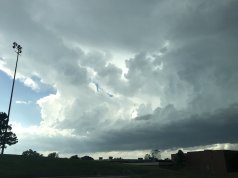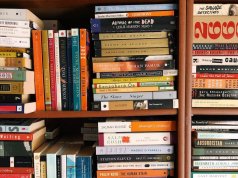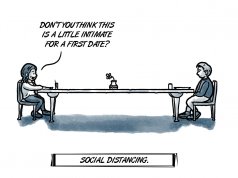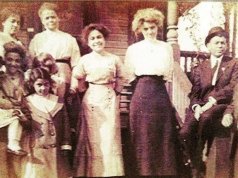
MOMBASA, Kenya — I believe experience has no meaning until it is frozen into words, to be swallowed in whole.
My friend, Olivia Oganda, tops the list of my good graces. She is forceful, amiable and expressive. These are adjectives that often do not have their end-of-day drink at the same local joint, but I shall single out two events that form the hallmark of my experience with her.
We met way back in secondary school. Both of us were form-four students. A math symposium was being held at her school, featuring various boys’ and girls’ schools. She was the head girl of hers.
Numbers are always boring to someone whose philosophy of life revolves around music, fashion and good looks. Thus, as the event progressed, most boys and girls became busy on their hunting errands, and hushed voices rose and fell in rhythm with the excitement created by the comfort zone of male and female interaction.
Olivia Oganda sat at the front-row seat; absorbing each logarithmic function at whatever angle theta it came through. I believe the lovers’ voices at the middle and back of the hall were unwelcome to her. She shot up. Looked back. And with a tone of finality, “Shut up!” she barked. The words came out in a way that meant ‘up’ was to be the last word in the script. Silence. No one spoke. Loyalty granted.
Later, during the “mingling” session, she was the most visible person. Smiling here, laughing there; talking to this group, and that other one. She made friends from both the angels’ and dogs’ units. She was such a maverick, and it was clear that she was easy to like.
Five years later, we had become permanent friends; the type of friendship that has bid farewell to time. I remember asking her out to a deli.
In a perfectly ‘Olivian’ way, she let me enjoy the luxuries that come with being a man: asking a lady out and suggesting the venue. Then she hit me with a life-giving bomb! She asked whether I would foot the bill, or whether we would share the amount incurred at the deli. In fact, she made it clear that she had always done the latter, and she enjoyed having it that way. And she had no intention of having it in any other version “this” time. Humor got the best of me, and I found myself saying that, “If you ever had to share the bill with a man, he is a loser.” I enjoyed the moment.
Olivia’s character transcends genres. She is not rigid. She is not tied to a description. She is not limited to a single interpretation. This character is the same to that of literature.
Literature is about human experiences. It tells about our “courage, and honour, and hope, and pride, and compassion, and pity, and sacrifice;” as said by William Faulkner in his Nobel Prize for literature acceptance speech. It also tells of our failures — and fears. Literature is therefore something that we can all claim a piece of, and feel a sense of ownership and belonging. Yet, we have made it rigid. We have made it appear as if it is a preserve of those who are fortunate enough to have been called by God into the level of understanding Thou Art 15th-century English. We have made it belong to the “elites.” Thus, we look away from a mirror that offers us a view into our own inner selves.
Like Olivia, literature can frown at this moment and smile the next. It can stand tall and scream at a deafening volume, but also crawl back to a solitary corner and sleep in silence. This is the beauty of literature. It is its most seductive element. And it is what makes it easy to like and identify with.
Let literature be as it should be: to be enjoyed by the goose, gander and gosling.
Literature on NonDoc:





















